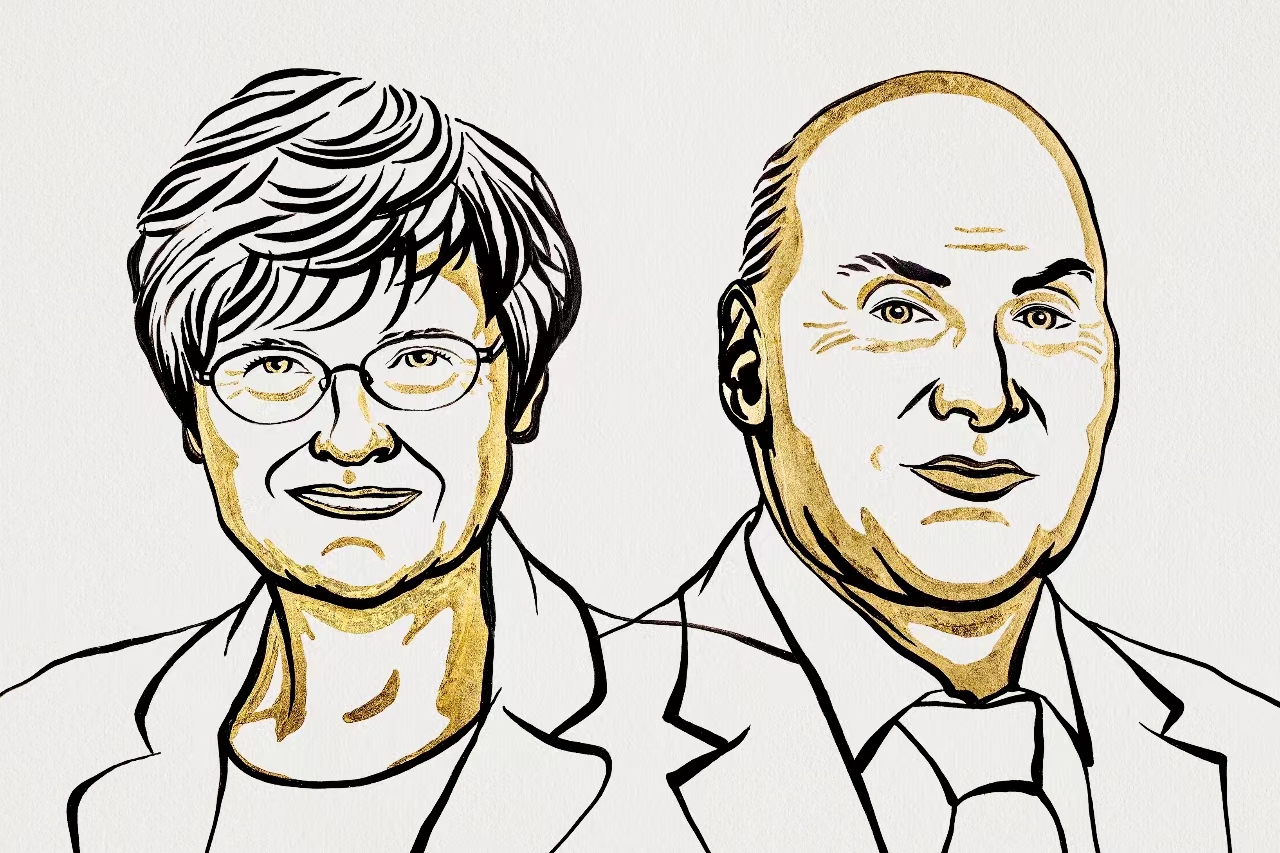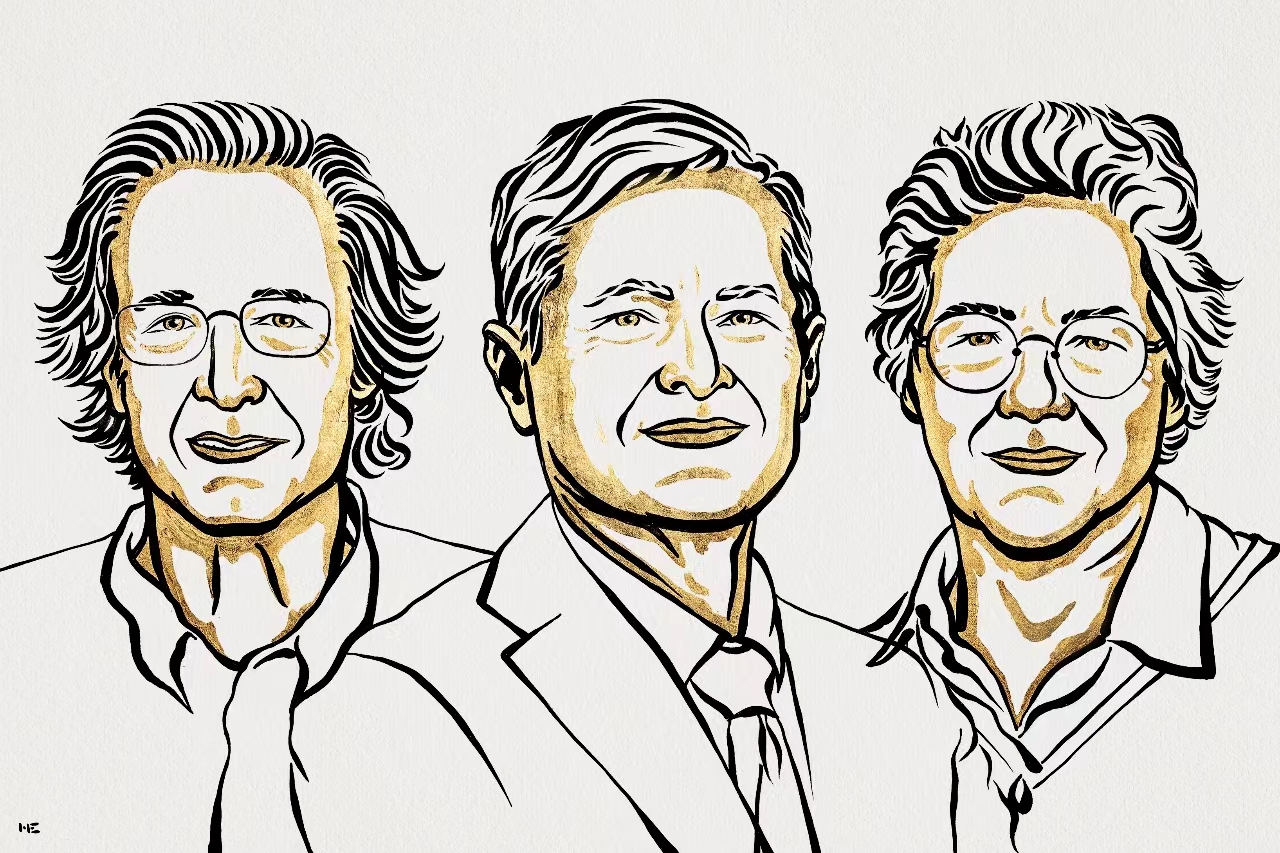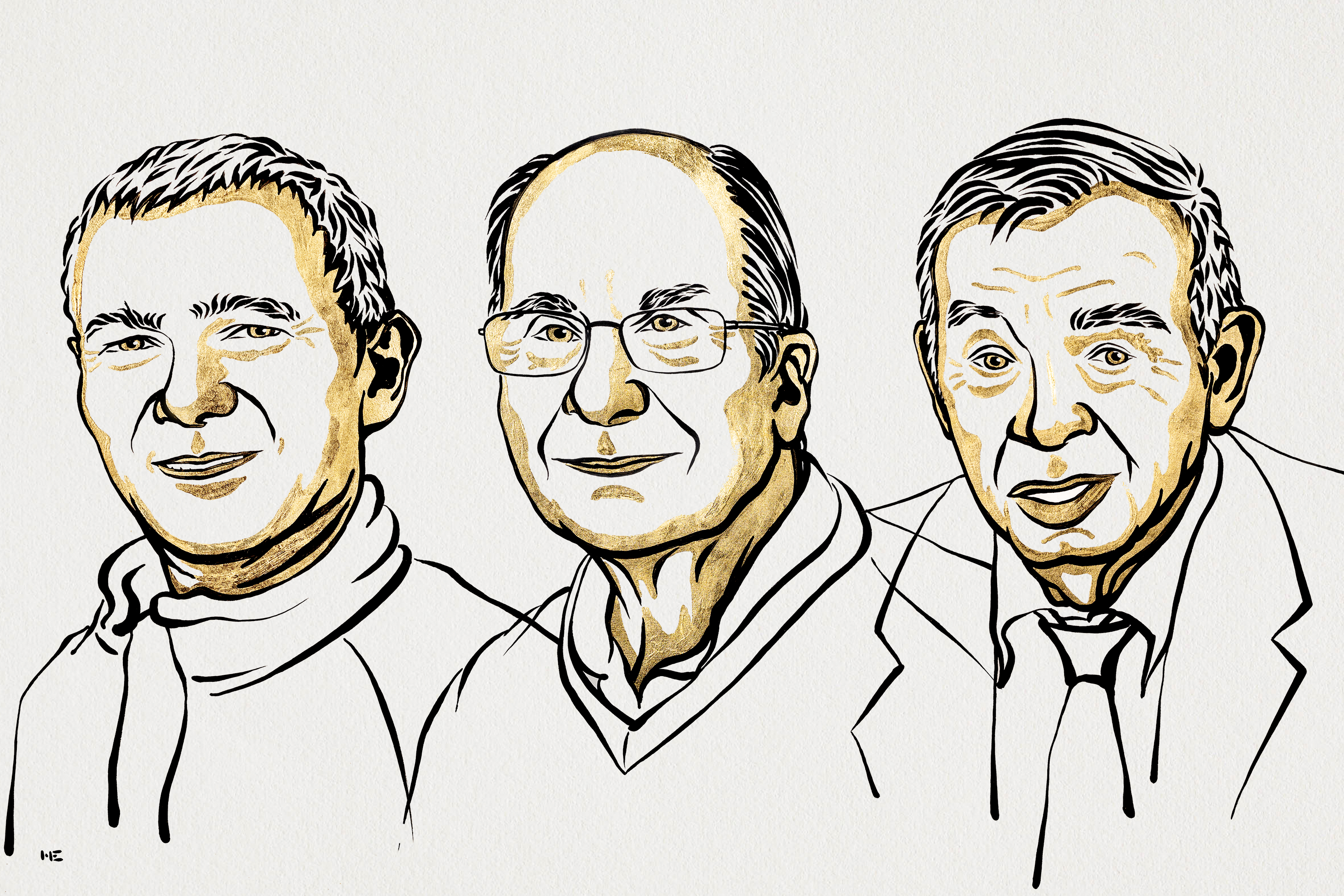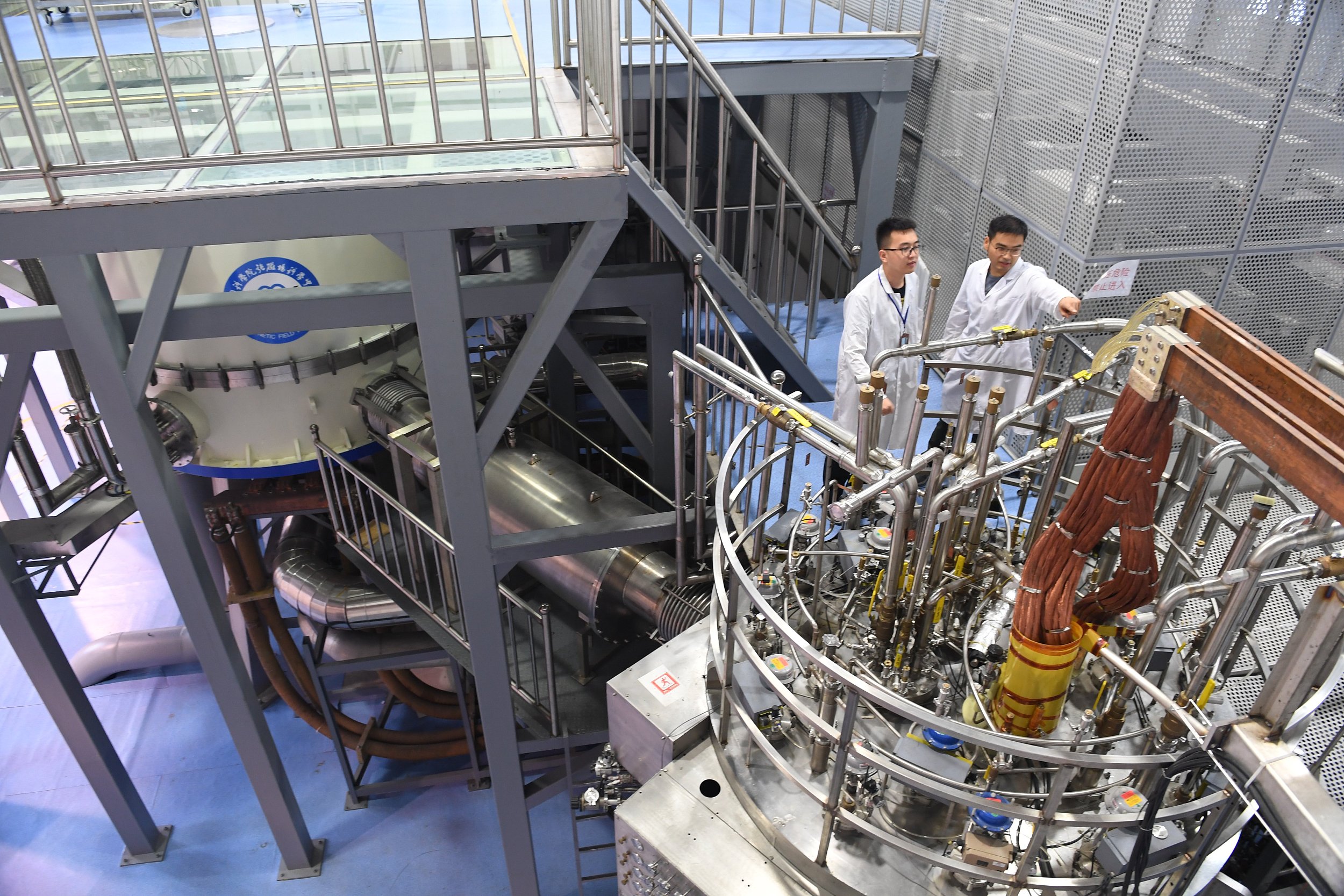Nobel Winners for Scientific Achievements Named

The illustration shows Katalin Karikó and Drew Weissman, laureates of the 2023 Nobel Prize in Physiology or Medicine. (PHOTO: Nobel Prize Outreach)

The illustration shows Pierre Agostini, Ferenc Krausz and Anne L'Huillier, laureates of the Nobel Prize in Physics 2023. (PHOTO: Nobel Prize Outreach)

The illustration shows Moungi Bawendi, Louis Brus and Alexei Ekimov, laureates of the Nobel Prize in Chemistry 2023. (PHOTO: Nobel Prize Outreach)
By Staff Reporters
The 2023 Nobel Prize in Physiology or Medicine, Physics and Chemistry were announced in sequence from October 2. Like their predecessors, this year’s laureates all made pioneering achievements in their respective fields, benefiting human beings as a whole.
The Nobel Assembly at Karolinska Institutet awarded the 2023 Nobel Prize in Physiology or Medicine jointly to Katalin Karikó and Drew Weissman “for their discoveries concerning nucleoside base modifications that enabled the development of effective mRNA vaccines against COVID-19.”
The assembly said the groundbreaking findings have basically altered how we perceive the interaction between mRNA and our immune system. The flexible and speedy development of mRNA vaccines provides a possibility for developing vaccines for other infectious diseases. In the future, the technology may also be adopted to deliver therapeutic proteins and treat some types of cancer.
The Nobel Prize in Physics was awarded to Pierre Agostini, Ferenc Krausz and Anne L’Huillier by the Royal Swedish Academy of Sciences “for experimental methods that generate attosecond pulses of light for the study of electron dynamics in matter.”
The academy said the trio have demonstrated a way to create extremely short pulses of light that can be used to measure the rapid processes in which electrons move or change energy, giving humanity new tools for exploring the world of electrons inside atoms and molecules.
Potential applications are possible in many different areas, according to the press release. For example, attosecond pulses can be used to identify different molecules in medical diagnostics. Also, they can be adopted in electronics to understand and control how electrons behave in a material.
Moungi G. Bawendi, Louis E. Brus and Alexei I. Ekimov received the Nobel Prize in Chemistry “for the discovery and synthesis of quantum dots.”
Quantum dots are tiny nanoparticles whose size determines their properties. They have different colors depending on their size, said Johan Åqvist, chair of the Nobel Committee for Chemistry.
Based on QLED technology, quantum dots can light up computer monitors and television screens. They also bring subtle difference to the light of some LED lamps, and biochemists and doctors use them to map biological tissue. Researchers believe that in the future they could contribute to flexible electronics, tiny sensors, thinner solar cells and encrypted quantum communication, according to the statement of the academy.


